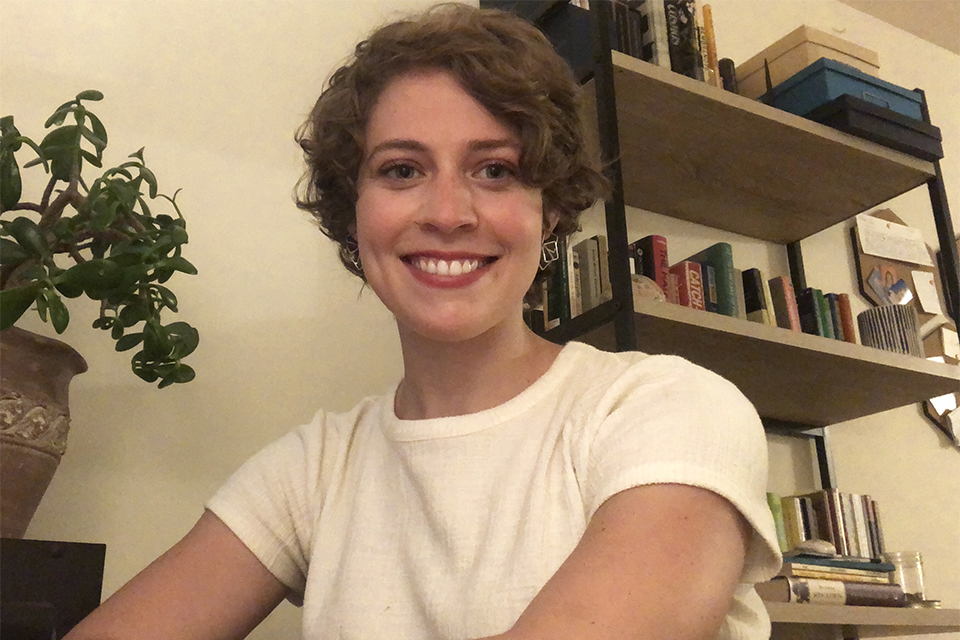Rachel Dale

I originally came to Brandeis as a Master’s student in the English department, unsure about whether or not I wanted to try to get a job in academia or return to my former role as a middle school ELA teacher after completing my degree. It quickly became clear to me that I wanted to pursue a PhD, regardless of whether or not it results in a traditional tenure-track professorship at the end. The faculty and other graduate students at Brandeis have shown me ways to expand my academic interests and scholarship beyond the classroom to engage with social and political concerns in the wider community. In my first year of the PhD program, I got involved with the Brandeis Educational Justice Initiative—a program founded by Professors Plotz, Sherman, and Kabrhel that seeks to provide post-secondary educational opportunities to people negatively impacted by the criminal justice system. In addition to some administrative responsibilities behind the
scenes, I have the pleasure of working as a teaching assistant for a first-year writing and speech course at the MCI-Concord facility, facilitating syllabus development, and co-teaching a workshop on mental health and access to care in the Partakers Empowerment Program. This work has complimented my research, which focuses on contemporary literature and trauma studies—a field that has been gaining momentum and garnering a lot of attention in recent years—and has shaped the kind of writing that I do. I have had the opportunity to explore student-centered and justice-oriented pedagogy in an actual classroom: an opportunity that I didn’t have in my previous work experience.
Generally (and far too broadly) speaking, I am interested in literature’s connection to interdisciplinary questions and social concerns. In addition to my work with BEJI, I’ve also been able to explore my academic interests and professional development in other fields as well. Over the summer, I took a course in Archive Management through a Connected PhD grant, which allowed me to further explore the working relationships between researchers and conservators. I originally decided to pursue this project because of my previous research in an archive of survivor testimonies, but it also encouraged me to ask questions about what artifacts and documents are deemed worthy of preservation—a theme that will be further explored in the 2
022 Graduate Student Conference I am helping to organize. I have found that one of the benefits of the doctoral degree program at Brandeis is that it is flexible; I have been able to shape the curriculum and projects that I want to pursue in my own way, focusing on what I think will be most useful, rather than following a pre-determined plan. I am excited by the chance to create my own pathway in collaboration with such a supportive group of scholars and fellow students.